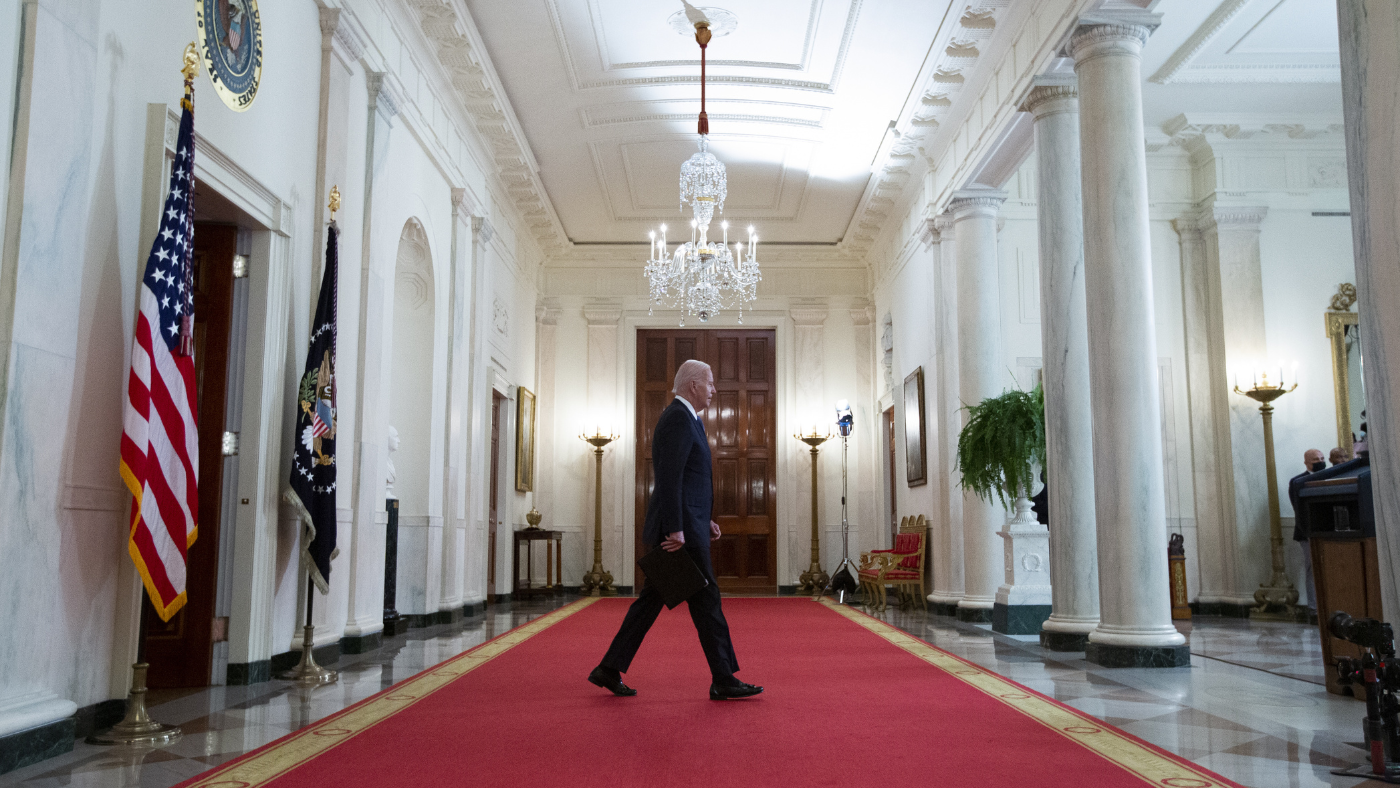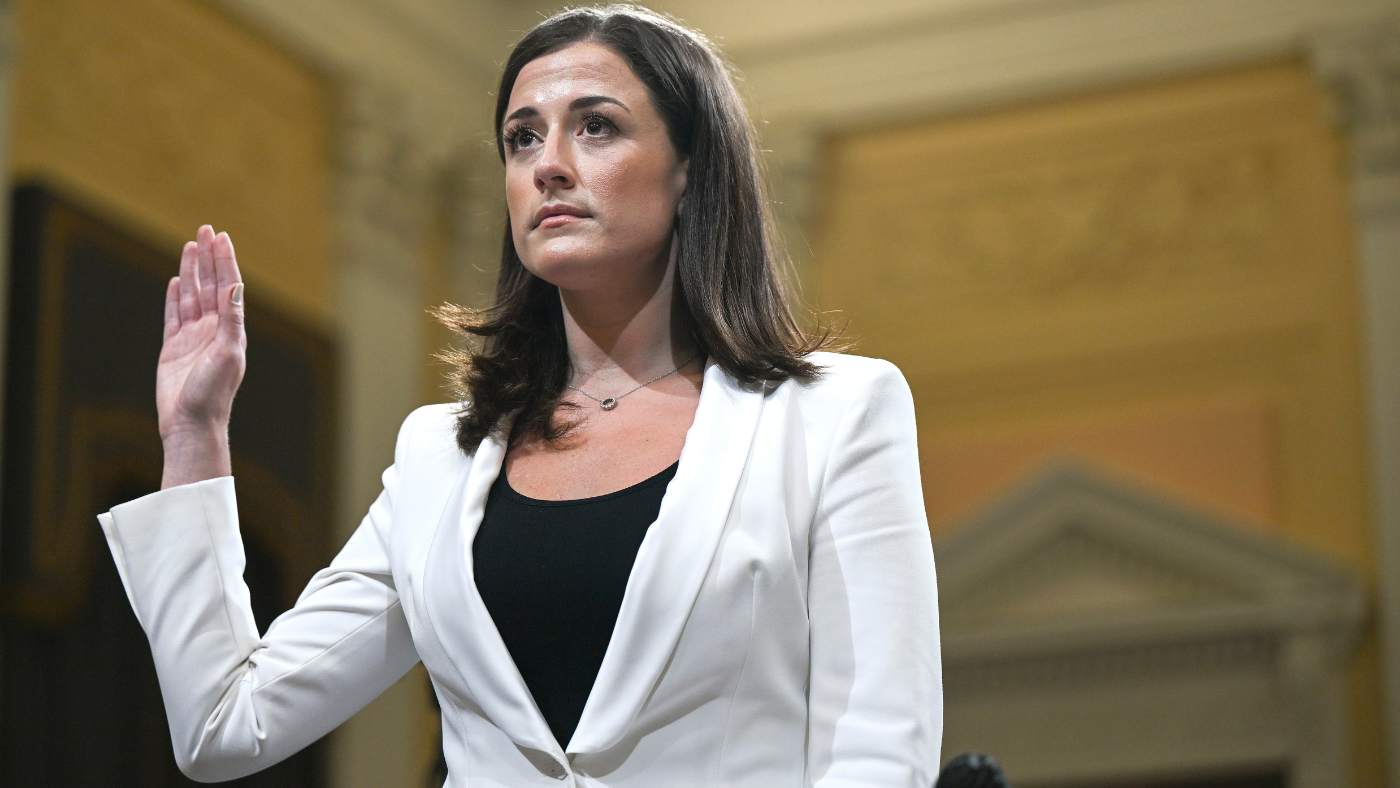‘Even wily Boris Johnson can’t outrun economics’
Your digest of analysis from the British and international press

- 1. Boris Johnson can battle business but he can’t ignore economics
- 2. Why do Insulate Britain activists want to save the human race when they clearly hate it so much?
- 3. The big problem with Boris Johnson’s Conservative Party conference speech
- 4. Let Harry Plopper pig out in your garden
- 5. What can an inquiry into the Sarah Everard murder possibly achieve? It won’t make women feel any safer
A free daily email with the biggest news stories of the day – and the best features from TheWeek.com
You are now subscribed
Your newsletter sign-up was successful
1. Boris Johnson can battle business but he can’t ignore economics
Robert Shrimsley in the Financial Times
on economic reality
“So it turns out that when Boris Johnson said ‘f**k business’, he really meant it,” writes Robert Shrimsley in the Financial Times. The “defining characteristic” of the Conservative Party conference “has been a unified assault on companies who are failing to adapt to a new economic model”, Shrimsley continues. There have been moments where “the scale of the vitriol towards big business left you wondering if you had been transported to a gathering of the Greens”, he writes. What has become “painfully clear to business organisations is that, while the political tactics are undoubtedly opportune, the government means what it says”. Johnson has a “coherent moral and political basis” for weaning big business off “low-wage foreign labour”, says Shrimsley. But his “fundamental problem” is that his strategy is “more political than economic”. “And even a wily politician cannot outrun the economics indefinitely,” he writes.
The Week
Escape your echo chamber. Get the facts behind the news, plus analysis from multiple perspectives.

Sign up for The Week's Free Newsletters
From our morning news briefing to a weekly Good News Newsletter, get the best of The Week delivered directly to your inbox.
From our morning news briefing to a weekly Good News Newsletter, get the best of The Week delivered directly to your inbox.
2. Why do Insulate Britain activists want to save the human race when they clearly hate it so much?
Michael Deacon in The Telegraph
on campaign strategy
“Should I ever find myself stuck in a traffic jam caused by Insulate Britain, I may, like many people, feel tempted to unglue their buttocks from the tarmac by means of the nearest blowtorch,” writes Michael Deacon in The Telegraph. But he’d like to ask the road-blockers one question: “Why are you trying to save the human race – when you so obviously despise it?” This, he says, is “what puzzles me whenever I read about this new mob of eco-activists”. “They purport to have humanity’s best interests at heart – yet display remarkably little concern for other people’s misery.” And “it’s still not clear why Insulate Britain seem so hell-bent on punishing people who agree with them”, writes Deacon. They agree, “for now, anyway”, he writes. “If the ‘inconveniences’ continue, some members of the public might become less sympathetic.”
A free daily email with the biggest news stories of the day – and the best features from TheWeek.com
3. The big problem with Boris Johnson’s Conservative Party conference speech
Ailbhe Rea in The New Statesman
on defining moments
Johnson’s speech to the Conservative Party conference was one that “encapsulated all of the strengths and weaknesses of his political project”, writes Ailbhe Rea in The New Statesman. “It displayed a prime minister at the height of his powers, flaunting his grip on the Conservative Party and his ability to take it with him even if that means going against, in some areas, its ideological instincts,” she continues. “But the weaknesses of the Johnson project were there for all to see as well.” Johnson faces “stark criticism” for a speech that failed to “speak directly to the problems the country faces in the coming months”, she writes. Will this come to be remembered as “the moment before it all unravels”, a speech that “spooked business” as well as “laying bare” how far the prime minister has strayed from “Conservative orthodoxy”? “Or will it be the apotheosis of Johnson’s prime ministerial career as we recall with awe his unique ability to withstand any crisis, and bring both country and party with him?”.
4. Let Harry Plopper pig out in your garden
Janice Turner in The Times
“Will farmers soon be bombarded with offers to adopt a pig?” asks Janice Turner in The Times. As we face a continuing supply chain panic, “conditions seem perfect for a 1970s Good Life self-sufficiency boom”, she says. “Shooting pigs that cannot be processed by abattoirs” seems a “grotesque waste of protein”, she continues. “Couldn’t farmers sell them instead to anyone with enough land to raise them until staff shortages ease?”. A generation ago, many kept a pig behind their village cottages, “feeding it windfall apples and kitchen scraps, going down each evening to scratch its back, mourning its final journey”. But “before the NFU writes in, I understand the impediments,” says Turner. “Plus a pork chop won’t win as many Instagram likes as a sourdough loaf and, as Homer Simpson found with his rescue pig Harry Plopper, you have an unpleasant by-product to process.”
5. What can an inquiry into the Sarah Everard murder possibly achieve? It won’t make women feel any safer
Hannah Fearne in The Independent
“To be fair to Priti Patel – now there’s a sentence I never imagined writing – what option did she have?” writes Hannah Fearn in The Independent. An official inquiry into how a man “as depraved” as Wayne Couzens was able to enter the force was “an inevitability”. “On the other hand, you could save some money and ask a woman – any woman – and you’ll get the same answers,” she writes. “What can any new official inquiry – inevitable and necessary though it is – tell women that they don’t already know?” “The culture inside the police – the sordid WhatsApp group chats, the sharing of explicit and unauthorised images, the ‘locker room’ talk between men at work – is by no means exclusive to the Met. Or even to the police.”
-
 How the FCC’s ‘equal time’ rule works
How the FCC’s ‘equal time’ rule worksIn the Spotlight The law is at the heart of the Colbert-CBS conflict
-
 What is the endgame in the DHS shutdown?
What is the endgame in the DHS shutdown?Today’s Big Question Democrats want to rein in ICE’s immigration crackdown
-
 ‘Poor time management isn’t just an inconvenience’
‘Poor time management isn’t just an inconvenience’Instant Opinion Opinion, comment and editorials of the day
-
 Boris Johnson shocks UK by resigning from Parliament
Boris Johnson shocks UK by resigning from ParliamentSpeed Read
-
 Bees delay flight for three hours
Bees delay flight for three hoursfeature And other stories from the stranger side of life
-
 ‘The UK’s malaise will not end with the Prime Minister’s exit’
‘The UK’s malaise will not end with the Prime Minister’s exit’Instant Opinion Your digest of analysis from the British and international press
-
 ‘Police tactics are not getting worse, they are simply being filmed’
‘Police tactics are not getting worse, they are simply being filmed’Instant Opinion Your digest of analysis from the British and international press
-
 ‘G7 leaders missed a golden opportunity’
‘G7 leaders missed a golden opportunity’Instant Opinion Your digest of analysis from the British and international press
-
 ‘It takes some soul searching to celebrate Canada Day’
‘It takes some soul searching to celebrate Canada Day’Instant Opinion Your digest of analysis from the British and international press
-
 ‘Breakthrough on abortion rights could be there if Biden reaches for it’
‘Breakthrough on abortion rights could be there if Biden reaches for it’Instant Opinion Your digest of analysis from the British and international press
-
 ‘If only Mark Meadows had even half Cassidy Hutchinson’s courage’
‘If only Mark Meadows had even half Cassidy Hutchinson’s courage’Instant Opinion Your digest of analysis from the British and international press